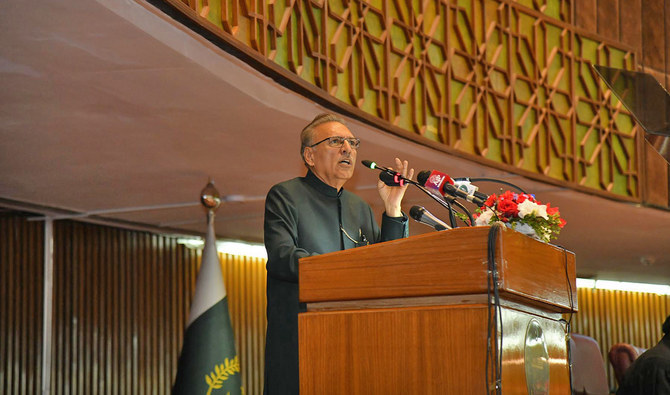ISLAMABAD: Pakistani Prime Minister Shehbaz Sharif on Tuesday congratulated Spanish PM Pedro Sanchez for pushing ahead with a decision to recognize a Palestinian state from today, Tuesday, as the European nation joins Ireland and Norway in implementing last week’s announcement.
The prime ministers of Spain, Ireland and Norway made the announcement on Wednesday, following recent recognitions by Barbados, Jamaica, Trinidad and Tobago and the Bahamas. The additions have brought the total number of countries recognizing the Palestinian state to nearly 150.
“The recognition of the reality of Palestine by a country like Spain is a positive and welcome development on the international scene,” Sharif said in a statement released by his office.
“Honorable [Spanish PM] Pedro Sanchez and the people of Spain have rejected the ongoing historical oppression and usurpation ambitions of Israel on innocent Palestinians with this decision.”
By joining more than 140 of the 193 member-states of the United Nations that recognize a Palestinian state, Madrid, Dublin and Oslo have said they sought to accelerate efforts to secure a ceasefire in Israel’s war with Hamas in Gaza.
“This is a historic decision that has a single objective: that Israelis and Palestinians achieve peace,” Sanchez said in a televised address before a cabinet meeting that will formally approve the measure.
Spain will recognize a unified Palestinian state, including the Gaza Strip and the West Bank, under the Palestinian National Authority with East Jerusalem as its capital, he said.
The Palestinian Authority, which exercises limited self-rule in the West Bank under Israeli military occupation, has welcomed the decision.
Sanchez said Madrid will not recognize any changes to pre-1967 borders unless agreed to by both parties.
“It’s the only way of advancing toward what everyone recognizes as the only possible solution to achieve a peaceful future, one of a Palestinian state that lives side by side with the Israeli state in peace and security,” he added.
Ireland’s Department of Foreign Affairs said last week it would upgrade its representative office in Ramallah in the West Bank to an embassy and appoint an ambassador and upgrade the status of the Palestinian mission in Ireland to an embassy.
The three countries say they hope their decision will spur other European Union countries to follow suit.
Israel has repeatedly condemned the move, insisting that it bolsters Hamas, which staged the Oct. 7 attack on Israel from its Gaza base.
“Sanchez, when you... recognize a Palestinian state, you are complicit in incitement to genocide against the Jewish people and in war crimes,” Israeli Foreign Minister Israel Katz wrote on X on Tuesday.
The Palestinian flag was flying outside the Irish parliament as the government was set to approve the recognition in a cabinet meeting on Tuesday morning.
“The people of Ireland know that a two-state solution is the only way to bring peace and stability to people in Israel, and to people in Palestine,” Prime Minister Simon Harris told journalists before the cabinet meeting.
-With inputs from Reuters
















